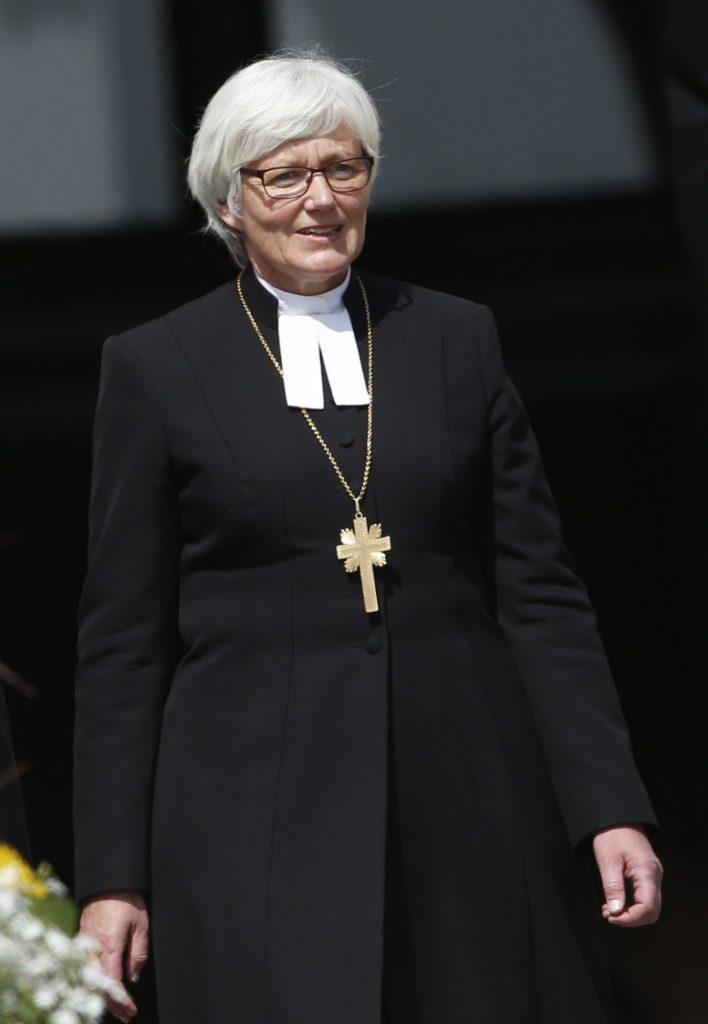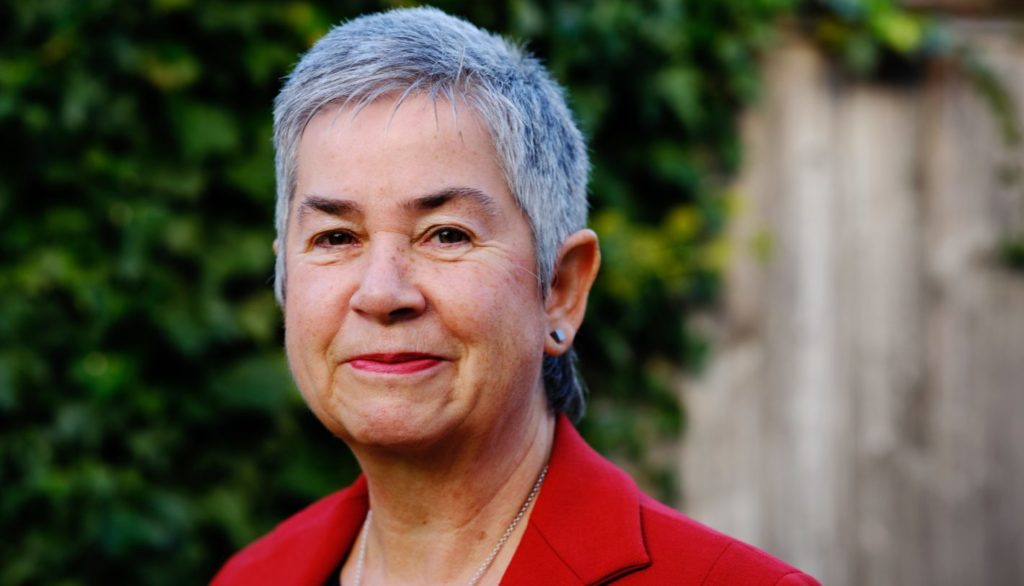On November 19 and 20, the plenary assembly of the Central Committee of German Catholics (ZdK for short), the body that together with the German Bishops' Conference (DBK) leads the Synodal Way. Apart from the election of the new president Irme Stetter-Karp, 65, as successor to Thomas Sternberg (who had chaired the ZdK since 2015), and other positions, the highlights were two: the presentation of the provisional results of a new study on sexual abuse - in this case in the Church of Münster, prepared by a group of historians, and the lecture delivered by the "archbishopess" of the Swedish Lutheran Church.
The project on the sexual abuse in Münster, which began two years ago under the direction of Thomas Grossbölting and Klaus Grosse Kracht and is scheduled for completion in the spring of 2022, the results so far are roughly in line with those of the so-called MHG report (because professors from the universities of Mannheim, Heidelberg and Gießen participated in it): about four percent of the clergy in that diocese have been accused of abuse since 1945.
Overall, these figures - according to Grossbölting and Grosse Kracht - correspond to the share of abusers in Germany's population, which is estimated to be between three and five percent. "In other words, Catholic priests are neither more nor less likely to commit sexual abuse. Neither their training nor their priestly ordination protected them from it."
Surprisingly, the directors of this project do not draw from these results any conclusions for prevention during the training period of priests. And neither do they do so from a fact of particular relevance: as they mention, three quarters of the victims are boys, which is in stark contrast to the structure of victims in the general population, where it is estimated that girls are affected three to four times more often than boys, i.e. just the opposite. It seems that the relationship between abuse and homosexuality remains a taboo subject.
Instead, they conclude: "It is possible that the Catholic Church does not have a quantitative problem with sexual abuse, but a qualitative one. Because the facts, but also the cover-up of abuse, have a profoundly Catholic character in many facets." In other words: according to Grossbölting and Grosse Kracht, the abuses have "systemic causes": in the sexual morality of the Church (this is also surprising: doesn't Catholic sexual morality prohibit sexual abuse?), as well as in the "Church's conception of the ministry in general", in that "the priest is not only superior to the laity in the leadership of the community, but also in his nature" because, with ordination, he acquires a part of the authority of Jesus Christ and represents him "in persona".
"This is the transcendent basis of the pastoral power that the 'holy man' has over his victims. From this context results the failure of the bishops' leadership."
In their interpretation of the results of the study, Grossbölting and Grosse Kracht argue for a different Church: "We are referring to something fundamental, the understanding of the priestly ministry, the relationship between priests and laity and between women and men, we are referring to the control from the outside of bishops and personnel managers and, essentially, to the limitation of pastoral power". In this way, sexual abuse provides an opportunity to question the foundations of the Catholic Church. In this regard, it is surprising that Thomas Söding, theologian and member of the ZdK presidium, felt compelled to describe the term "abuse of abuse" as a "poisoned word".

In this context, the enthusiasm with which the participants in the ZdK assembly welcomed the lecture given by the Lutheran "archbishopess" Antje Jackelén from Uppsala (Sweden) is also understandable. Originally from Germany, she has been living in Sweden for 40 years; and since 2014 she has been at the head of the Swedish Lutheran Church. The ZdK presidency had asked her to provide an "outsider's view" of the synodal journey in Germany.
Although she considers that it would be "insolent" to indicate a goal for the synodal path, because "the Church of Sweden does not have the solution", Antje Jackelén outlined how synodality is understood in this Lutheran church: "There is what we call two 'lines of responsibility': on the one hand, the 'episcopal line', with bishops, presbyters and deacons: bishops are elected in each diocese by presbyters and deacons, as well as by the same number of lay people; on the other hand, the 'synodal line', whose representatives are elected in direct and democratic ballots. The key concept is common responsibility.
That it is "widely accepted in Sweden that both men and women can be ordained" is another aspect that fell on fertile ground at the ZdK assembly. Irme Stetter-Karp, its newly elected president - who is also vice-president of Caritas in Germany - said after her election: "As a woman, for me this exclusion [of women from ordination to the priesthood] is not acceptable, but not only since the 2000s, but always. I do not think it is reasonable for my Church to ordain, by decree or according to sex, some yes and others no. I do not think it is acceptable for my Church to ordain women to the priesthood.
This is my perspective as a woman, but it is also shared by many men. An equally decisive reason seems to me to be the pastoral question. For this I often use a simile: one cannot roll out dough indefinitely when one wants to bake a cake; at some point it will break. This is a risk I see in many communities. For me, faith is so important that it leads me to say: it would be good if we reconsidered this".
It is not surprising, therefore, that at the end of her presentation Irme Stetter-Karp invited Antje Jackelén to the Convention of German Catholics in 2022; but also other participants in the Assembly were quick to invite her to participate in the deliberations of the synodal journey. It seems that at least some members of the ZdK Assembly consider the Swedish Lutheran Church as a model for the German synodal path.








